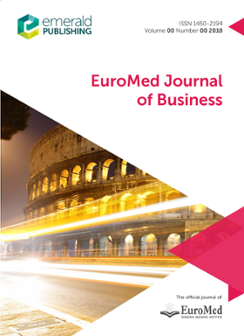生命周期阶段对资本支出的影响:来自新兴市场的证据
IF 3.9
Q2 BUSINESS
引用次数: 0
摘要
本文的目的是研究生命周期阶段对资本支出的影响,使用Borsa伊斯坦布尔上市公司。设计/方法学/方法采用面板数据估计程序作为检验假设的主要方法。作者使用了四个额外的分析来检查结果的稳健性。利用广义矩估计方法对模型进行了内生性检验。采用分位数回归对模型进行非参数检验。在第三个稳健性检验中,使用财政约束和Hadlock和Pierce(2010)提出的Size-Age (SA) Index将样本分成两部分。最后一项分析将全球金融危机年份从样本中剔除。研究发现:在伊斯坦布尔证交所上市的公司在生命周期阶段越往前走,往往投资越少。结果表明,市值、经营性现金流水平和杠杆对资本支出投资有正向影响。实证还表明,现金持有水平对资本支出决策有负向影响。稳健性测试支持该结果。研究结果对投资者和管理者具有潜在的借鉴意义。如果了解到资本支出的减少意味着公司处于生命的最后阶段,这将是经理们改进投资策略以避免破产和生存的一个信号。他们需要找到各种选择和解决方案,推动公司重回增长之路。此外,同样的信息可能对投资者的投资决策至关重要。原创性/价值本文通过提供关于生命周期阶段对新兴市场资本支出影响的证据,为文献做出了贡献。据作者所知,这是第一篇实证研究生命周期阶段如何影响新兴市场资本支出的论文。本文章由计算机程序翻译,如有差异,请以英文原文为准。
The effect of life cycle stages on capital expenditures: evidence from an emerging market
PurposeThe purpose of the article is to examine the effect of life cycle stages on capital expenditures, using Borsa Istanbul-listed companies.Design/methodology/approachThe panel data estimation procedure was used as the primary method to test the hypothesis. The authors used four additional analyses to check the robustness of the results. The model was tested for endogeneity using the generalized method of moments (GMM) estimation. Quantile regression was utilized for the non-parametric test of the model. In the third robustness test, the sample was divided into two using financial constraints with the Size-Age (SA) Index proposed by Hadlock and Pierce (2010). The last analysis removed the global financial crisis (GFC) years from the sample.FindingsBorsa Istanbul-listed companies tend to invest less as they move forward in their life cycle stages. The results show that market capitalization, operating cash flow levels and leverage positively affect capital expenditure investments. The empirical evidence also revealed that cash holding levels have a negative effect on capital expenditure decisions. Robustness tests support the results.Practical implications The findings are potentially useful for investors and managers. Having the information that decreasing capital expenditures signals that the company is in the last stages of its life would be a sign for managers to improve their investment strategies to avoid getting out of business and survive. They need to find options and solutions to propel their companies back on a path of growth. Additionally, the same information could be vital for investors' investment decisions.Originality/valueThis paper contributes to the literature by providing evidence about the effect of life cycle stages on capital expenditures from an emerging market. To the best of the authors’ knowledge, it is the first paper to investigate empirically how moving forward in the life cycle stages affects capital expenditures in an emerging market.
求助全文
通过发布文献求助,成功后即可免费获取论文全文。
去求助
来源期刊

EuroMed Journal of Business
BUSINESS-
CiteScore
9.80
自引率
19.20%
发文量
61
期刊介绍:
The EuroMed Journal of Business (EMJB) is the premier publication facilitating dialogue among researchers from Europe and the Mediterranean. It plays a vital role in generating and disseminating knowledge about various business environments and trends in this region. By offering an up-to-date overview of emerging business practices in specific countries, EMJB serves as a valuable resource for its readers.
As the official journal of the EuroMed Academy of Business, EMJB is committed to reflecting the economic growth seen in the European-Mediterranean region. It aims to be a focused and targeted business journal, highlighting environmental opportunities, threats, and marketplace developments in the area. Through its efforts, EMJB promotes collaboration and open dialogue among diverse research cultures and practices.
EMJB serves as a platform for debating and disseminating research findings, new research areas and techniques, conceptual developments, and practical applications across various business segments. It seeks to provide a forum for discussing new ideas in business, including theory, practice, and the issues that arise within the field.
 求助内容:
求助内容: 应助结果提醒方式:
应助结果提醒方式:


